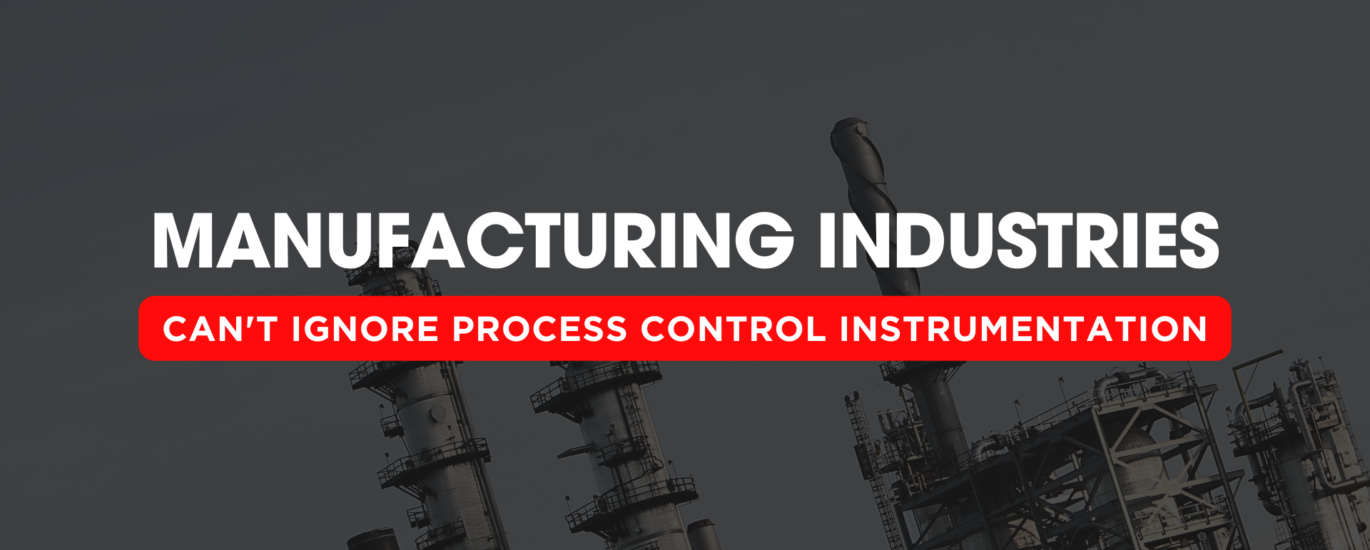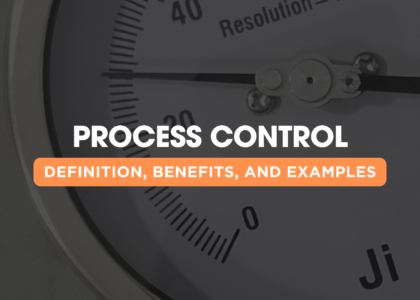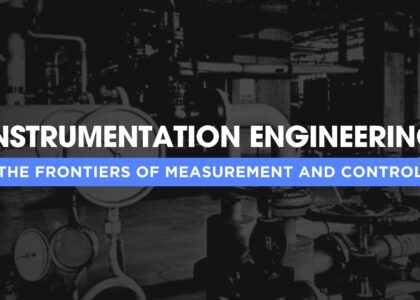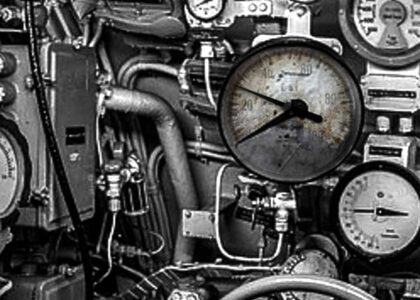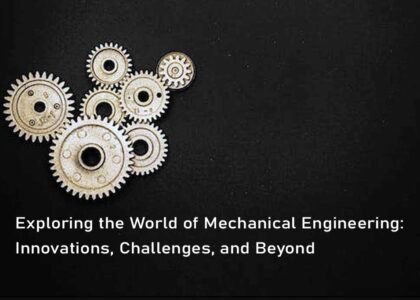Manufacturing Industries Can’t Ignore Process Control Instrumentation
Process control instrumentation is a crucial aspect of any manufacturing industry. It refers to the use of sensors, controllers, and other devices to monitor and regulate various processes involved in the production of goods. Without proper process control instrumentation, manufacturing industries would struggle to maintain consistent quality and safety standards for their products.
In today’s highly competitive market, where consumers demand high-quality products, it is essential for manufacturing industries to invest in advanced process control instrumentation. This technology not only ensures product quality but also helps in optimizing production processes, reducing waste, and enhancing overall efficiency. In this blog post, we will delve into why process control instrumentation is essential for manufacturing industries and how it impacts product quality and safety.
Table of Contents
Understanding Process Control Instrumentation Basics
At the heart of process control instrumentation are the tools and technologies that monitor, measure, and regulate the various parameters essential to manufacturing processes. This includes temperature, pressure, flow, level, and chemical composition among others. Sensors are deployed to gather data on these parameters, transmitting the information to controllers which then analyze the input.
Based on pre-set criteria or algorithms, these controllers make adjustments to the process actuators, such as valves or motors, ensuring that the process remains within desired operational ranges. The fundamental objective of process control instrumentation is to achieve efficiency, consistency, and safety in production lines.
For example, in the chemical manufacturing industry, maintaining the correct temperature and pressure during a reaction is critical to ensure the quality of the final product and to prevent potentially hazardous conditions.
Similarly, in the food and beverage sector, process control instrumentation ensures that products are made consistently to meet health standards, maintaining the desired taste, texture, and appearance. By understanding the basics of process control instrumentation, manufacturing industries can better appreciate its critical role in optimizing production processes, thereby achieving their quality and safety goals.
The Role of Process Control in Ensuring Product Quality
When every aspect of the production process is meticulously regulated, from the raw materials used to the environmental conditions in the factory, the outcome is a product that not only meets but often exceeds quality expectations. This rigorous attention to detail helps in identifying potential issues before they become problems, minimizing the risk of defective products reaching the market. In industries where the margin for error is minimal, such as pharmaceuticals and aerospace, this level of control is critical. It ensures that each product is consistent with the next, maintaining the reliability and trustworthiness of the brand.
Additionally, the data collected through process control instrumentation provides valuable insights for continuous improvement, allowing manufacturing industries to refine their processes further and enhance product quality over time. This proactive approach to quality assurance through process control instrumentation demonstrates a commitment to excellence and customer satisfaction.
Enhancing Safety Through Process Control Instrumentation
Safety in manufacturing is paramount, not only for the protection of workers but also to prevent potentially catastrophic incidents that can arise from uncontrolled process variables. Process control instrumentation plays a pivotal role in enhancing safety by constantly monitoring the operational parameters of manufacturing processes.
For instance, in industries dealing with flammable or explosive materials, the ability to accurately monitor and control temperatures and pressures can mean the difference between normal operation and a dangerous situation. By setting thresholds on these parameters, any deviation that could lead to unsafe conditions triggers an immediate response, such as shutting down the operation or activating emergency cooling systems.
Additionally, the detection of hazardous gases or leakages is facilitated through specialized sensors, thereby preventing exposure to toxic substances or reducing the risk of explosions. This vigilant monitoring and automatic adjustment capability of process control instrumentation not only protect the workforce but also safeguard the surrounding community and the environment from industrial hazards.
Through its integration, manufacturing industries uphold the highest standards of safety, ensuring that risks are minimized and that compliance with regulatory requirements is consistently achieved.
The Impact of Process Control on Manufacturing Efficiency
Process control instrumentation significantly boosts manufacturing efficiency by streamlining production processes and minimizing the need for manual intervention. With the accurate and continuous monitoring of production variables, these systems can quickly detect inefficiencies or deviations from the optimal process parameters.
This immediate feedback allows for rapid adjustments, reducing downtime and the resources expended on corrective actions. Moreover, by maintaining operations within tightly controlled parameters, process control systems ensure that raw materials are used optimally, reducing waste and energy consumption.
The precise control over process conditions also enables manufacturing industries to operate closer to their capacity limits safely, thus maximizing output without compromising product quality or safety. This heightened efficiency not only leads to cost savings but also enhances the competitiveness of manufacturing industries in the global market.
By integrating advanced process control instrumentation, manufacturers can achieve a level of operational agility and efficiency that is essential for meeting the dynamic demands of today’s market and for sustainable growth.
Key Components of Process Control Instrumentation
The key components of process control instrumentation form the backbone of efficient and effective manufacturing operations. At the core are sensors and transducers, which collect data from the manufacturing environment, such as temperature, pressure, and flow rates.
These devices convert physical parameters into electrical signals that can be read and interpreted by controllers. Controllers, which include PLCs (Programmable Logic Controllers) and DCS (Distributed Control Systems), receive input from sensors and execute predefined algorithms to adjust the process accordingly, ensuring it operates within the set parameters.
Actuators play a critical role by physically adjusting the process based on the controller’s commands, which may involve opening or closing valves, starting or stopping pumps, or adjusting the speed of motors.
Human-Machine Interfaces (HMIs) and Supervisory Control and Data Acquisition (SCADA) systems allow operators to interact with the process control system, providing a user-friendly overview of the process, enabling manual inputs, and allowing for real-time monitoring and adjustments.
Together, these components work in concert to maintain the delicate balance of manufacturing processes, ensuring product quality, safety, and efficiency are consistently achieved.
Real-World Applications of Process Control Instrumentation
Additionally, in the automotive industry, process control instrumentation is integral in robotic assembly lines, where precision and repeatability are paramount. These systems meticulously control the operation of machinery, ensuring each vehicle component is manufactured and assembled to meet exact specifications.
Another noteworthy application is in wastewater treatment plants, where process control plays a vital role in regulating chemical dosages and managing the treatment process, ensuring the safety of water for reuse or release into the environment.
Through these diverse applications, it’s evident that process control instrumentation is fundamental in enabling industries to achieve operational excellence and adhere to safety and quality standards.
Future Trends in Process Control Instrumentation
The future of process control instrumentation is poised for transformative advancements, propelled by the integration of digital technologies and artificial intelligence (AI). As manufacturing industries move towards Industry 4.0, we will see a greater reliance on IoT (Internet of Things) devices and sensors that enable more precise and real-time data collection.
This shift allows for the implementation of predictive analytics, where AI algorithms can forecast potential issues before they arise, enabling preemptive adjustments to maintain optimal production conditions. Furthermore, the adoption of wireless communication and cloud technologies will enhance the connectivity and scalability of process control systems.
This means that remote monitoring and control of manufacturing processes will become more feasible and efficient, allowing for greater flexibility and responsiveness to changes in production demands. Additionally, augmented reality (AR) and virtual reality (VR) are set to play a significant role in process control by providing immersive training environments for operators and facilitating remote troubleshooting and maintenance assistance.
These future trends indicate a move towards more autonomous, interconnected, and intelligent process control systems that promise to further elevate the standards of quality, safety, and efficiency in manufacturing industries.
Overcoming Challenges in Implementing Process Control Systems
Implementing process control systems in manufacturing industries can be fraught with challenges, ranging from technical complexities to resistance to change. One significant hurdle is the initial capital investment required for state-of-the-art instrumentation and the integration of these systems into existing manufacturing setups.
To mitigate this, manufacturers should consider phased approaches, prioritizing areas with the highest return on investment. Another challenge lies in the need for skilled personnel capable of managing and maintaining these sophisticated systems. This issue can be addressed through comprehensive training programs and by fostering a culture that values continuous learning and innovation.
Additionally, ensuring data security in an era where cyber threats are prevalent is critical. Adopting robust cybersecurity measures and regularly updating them is essential to protect sensitive operational data. Lastly, the complexity of integrating new technology with legacy systems can pose significant challenges.
Leveraging expertise from system integrators who specialize in bridging this gap can ensure a smoother transition. Overcoming these obstacles is crucial for manufacturers to harness the full potential of process control instrumentation, enabling them to achieve greater efficiencies, enhance product quality, and ensure workplace safety.
The Economic Justification for Investing in Process Control Instrumentation
The initial cost of implementing process control instrumentation can be substantial, but the long-term economic benefits it offers to manufacturing industries make it a wise investment. By automating and optimizing production processes, these systems significantly reduce operational costs by minimizing waste, lowering energy consumption, and cutting down on the need for manual oversight and intervention.
This translates into a more efficient use of resources and a noticeable reduction in production costs over time. Furthermore, the ability to consistently produce high-quality products enhances a company’s reputation, opens up new market opportunities, and can lead to increased customer satisfaction and loyalty. This, in turn, can drive higher sales and profitability. Additionally, by ensuring compliance with safety and environmental regulations, process control instrumentation can help avoid costly fines and potential shutdowns.
The investment in process control technology also positions manufacturing industries to be more agile and responsive to market changes, ensuring they remain competitive in an ever-evolving global market. The economic justification for such an investment becomes evident when considering these direct and indirect benefits that contribute to a stronger bottom line and a more sustainable business model.
Conclusion: The Non-Negotiable Importance of Process Control Instrumentation
In summary, the critical role of process control instrumentation in manufacturing industries cannot be understated. It serves as the foundation for ensuring product quality, safety, and operational efficiency. As we’ve explored, the benefits extend far beyond the immediate improvements in production processes.
They encompass enhanced safety measures, economic advantages through cost reductions, and a competitive edge in the global market. Investing in sophisticated process control systems is not merely an option but a necessity for manufacturers aiming to meet the stringent demands of modern markets and regulatory environments.
The future trends in process control technology promise even greater capabilities and efficiencies, emphasizing the importance of staying at the forefront of this technological evolution. In essence, process control instrumentation is an indispensable tool that empowers manufacturing industries to achieve excellence, sustainability, and growth.
Japsin Instrumentation – Since 1974



